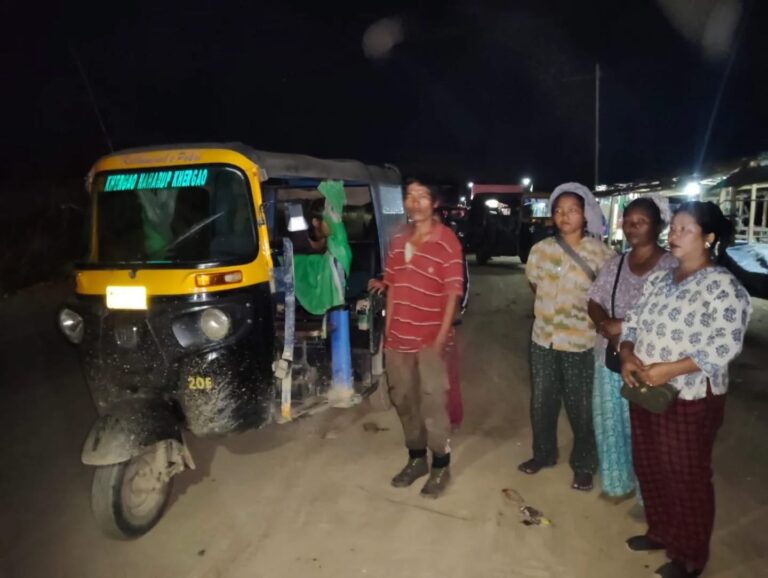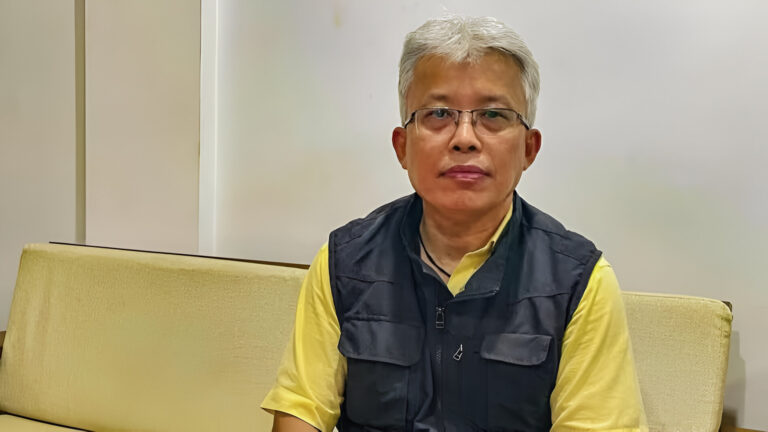Manipur CM Discusses Effective Utilization of Funds with Finance Commission
Summary
Manipur’s Chief Minister, N. Biren Singh, engaged in important discussions with the 16th Finance Commission to ensure the effective use of funds allocated to the state. The conversation focused on utilizing Central funds for the development of various sectors and proposed grants-in-aid for specific projects. Chairman Dr. Arvind Panagariya led the meeting, emphasizing the need for proper fund allocation to stimulate economic growth in the state. This initiative highlights the government’s efforts to foster long-term economic transformation and sustainability.
A Comprehensive Overview of Manipur’s Discussion with the Finance Commission
Introduction to the Finance Commission’s Role
In the ever-evolving economic landscape of Indian states, the Finance Commission plays a pivotal role. The 16th Finance Commission, under the leadership of Dr. Arvind Panagariya, is tasked with ensuring that central funds are allocated efficiently to various states, promoting balanced growth across the country. For Manipur, a state that faces unique developmental challenges, the proper utilization of these funds is essential for fostering sustainable economic progress. The recent discussions between Manipur’s Chief Minister, N. Biren Singh, and the Finance Commission are a significant step toward achieving this goal.
The Key Objective: Maximizing Fund Utilization
The primary agenda of the meeting was to explore how funds allocated through Centrally Sponsored Schemes (CSS) could be used more effectively. These funds have the potential to impact sectors like infrastructure, healthcare, education, and more. By strategically planning their use, the government aims to catalyze the economic transformation of Manipur. Singh emphasized the importance of aligning state-level projects with central objectives, ensuring that the funds reach their maximum potential in driving the state’s growth.
Central Government’s Role in Manipur’s Development
The Indian government allocates substantial amounts of money to states through various grants-in-aid, designed to support projects that cater to each state’s developmental needs. Manipur, a state with geographical and socio-political challenges, has significant potential for growth through these central grants. The Chief Minister’s discussions with the Finance Commission are not just about managing the funds but about ensuring that these resources contribute to long-term, transformative growth.
Focus on Grants-in-Aid and Sectoral Development
The talks also involved exploring proposals for grants-in-aid for specific sectors within the state. These include infrastructure projects that are critical for connectivity, healthcare advancements to improve public health, and educational reforms to uplift the youth. Moreover, the government is focused on providing strategic guidance to ensure that all funds are utilized to create a ripple effect of positive development across rural and urban areas alike.
Dr. Arvind Panagariya’s Vision for State-Level Growth
Chairman Dr. Arvind Panagariya’s input has been instrumental in shaping discussions. He urged states, including Manipur, to boost their own internal revenue generation. This call for fiscal self-reliance is not just about reducing dependency on central grants but also about building a robust internal economy that can support public services and developmental projects. Panagariya’s vision includes raising the Gross State Domestic Product (GSDP), which directly correlates with the state’s revenue generation capacity.
The Importance of Raising Internal Revenue
One of the crucial aspects of the Finance Commission’s recommendations is that states need to find ways to raise their own revenues. This is not just about reducing reliance on grants but about strengthening the financial independence of the state. A larger GSDP means more resources for the government to invest in development without having to depend entirely on external funding. Chief Minister Biren Singh is keen on aligning Manipur’s fiscal policies with these goals, thereby ensuring that the state can sustain its growth trajectory even after external funds are utilized.
Future Plans for Infrastructure and Other Key Areas
During the meeting, discussions also revolved around specific infrastructure and developmental projects that need immediate attention. In Manipur, improving transportation and connectivity is vital, and such projects are often prioritized when central funds are distributed. Additionally, investments in education, healthcare, and the rural economy are seen as essential components of the state’s growth plan. These areas, once developed, will create a solid foundation for further economic activities.
Conversations on Sector-Specific Approaches
While the general direction of the discussions was about managing the funds efficiently, the meeting also focused on sector-specific approaches to development. Manipur’s rural economy, agriculture, and industrial sectors are all at different stages of development. Tailoring strategies to address the unique challenges of each sector ensures that no part of the state is left behind. Through careful planning and allocation, Manipur aims to bring all its regions on par with more developed states.
The Role of the Finance Commission’s Recommendations in Fostering Growth
The Finance Commission’s advice often serves as a guide to the central and state governments in the allocation of resources. For Manipur, the most significant takeaway from the discussions was how these funds can be directed toward long-term infrastructure and human capital projects. With projects focused on sustainability and economic self-sufficiency, the state can gradually reduce its dependence on external funding.
Importance of Collaboration Between the State and Central Governments
As evidenced in these discussions, the collaboration between state and central governments is essential for development. While the Finance Commission allocates funds, it is up to the state to implement these resources effectively. The partnership between Manipur’s leadership and the Commission reflects a shared vision for growth and prosperity, which will be crucial for the state’s future.
The Bigger Picture: National Impact of Effective Fund Utilization
When smaller states like Manipur utilize funds effectively, it not only drives their own growth but also contributes to the overall economic development of the country. Through efficient fund management, the state will be able to create jobs, improve living standards, and foster a more resilient economy. This holistic approach to economic transformation will have lasting benefits for the people of Manipur and for India as a whole.
FAQs
- What is the Finance Commission’s role in state development?
The Finance Commission ensures that funds are allocated properly to each state based on their developmental needs, helping foster balanced economic growth across the country. - How can Manipur use central funds effectively?
By strategically allocating funds to sectors like infrastructure, education, and healthcare, and ensuring they are used for long-term growth rather than short-term solutions. - Why is fiscal self-reliance important for Manipur?
It reduces the dependency on central grants, allowing the state to invest more in its own development, thus creating a sustainable economy. - What are the sectors in Manipur that need urgent development?
Key sectors include infrastructure, healthcare, education, and rural development, which need targeted investments to uplift the state’s economy. - How does improving GSDP contribute to Manipur’s growth?
A higher GSDP leads to more internal revenue, which can be reinvested into the state’s development, reducing reliance on external funding.




